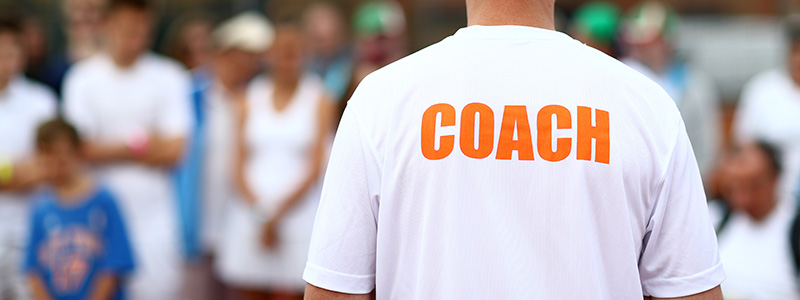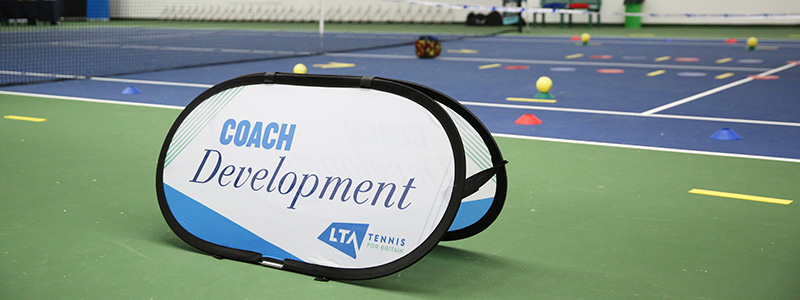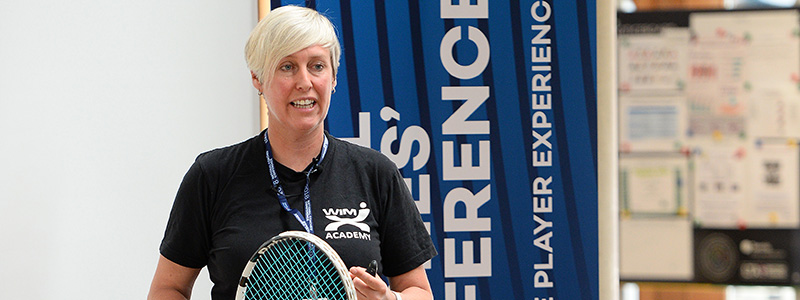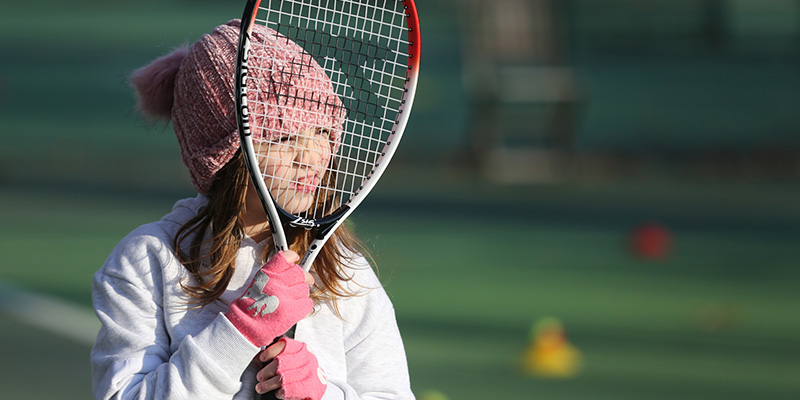We are so lucky in tennis that the top of the professional game benefits from hard-won equal prize money and is replete with role models for young girls. But there’s a lot more work to do if we want the grassroots game in this country to replicate the heady heights of the WTA Tour.
We need to attract more female players, but more importantly we need to work hard to retain them. Tennis needs to affix itself to the developing personalities of young girls and stay relevant throughout their lives, and to do that we need to offer girls fun, friendships, and female role models.
Currently, only 23% of our coaching workforce is female, and the ratio of female to male coaches declines as the coaching levels and qualifications increase. Therefore, the vast majority of coaching environments are not fully set up to communicate with girls. It’s not that male coaches don’t try or don’t care about their female players – quite the opposite is true in my experience.

But as long as women are largely absent at the coal face of coaching, and therefore not significantly contributing to how clubs, programmes, coaching, and therefore our sport, communicates with girls, then we will always struggle to grow participation and stem drop out in the women’s game. In short, we need more female coaches if we want to grow the participation amongst female players.
…one direct intervention I’m particularly excited about is our Pre-LTA Assistant (Level 1): Taster Course for Females, which is deliberately designed to attract women who wouldn’t ordinarily consider coaching
We’re tackling this across many areas within the Coach Development and Support Team at the LTA, but one direct intervention I’m particularly excited about is our Pre-LTA Assistant (Level 1): Taster Course for Females. The course is deliberately designed to attract women who wouldn’t ordinarily consider coaching, e.g., mums, teenage girls, and women with little playing experience.
It’s a free, two-hour workshop designed to get more women onto a coach education journey that starts with the LTA Assistant qualification, and it is very interactive to ensure the attendees can share experiences, build confidence from knowing there are other women like them on the workshop, and take comfort that they will know someone if they decide to book on to their Assistant course. The content of the workshop outlines the skills needed to be an Assistant, e.g., engaging communication and an awareness of safety and organisation, which the women who attend already possess abundantly in most cases.

We have set aside funding to enable our Coach Development Centres, who are responsible for every country and county in Great Britain, to deliver multiple courses this year. And we’ve also ring-fenced a female coach grant budget to subsidise female coaches undertaking their Level 1/Assistant qualification.
This is the first year with our new network of CDCs in place, so it’s a baseline year of measuring the change-making capability of our new set up. However, our aspiration is to grow female numbers of qualified Assistants to 40%, and if we’re successful we have established a fantastic foundation on which to build next year.
Jo Ward
Jo Ward – LTA Coach Education and Curriculum Manager

A former professional player and coach on the WTA tour, Jo is regarded as one of the most passionate and knowledgeable authorities on women and girls in tennis and is a regular contributor on the subject. As the LTA’s Coach Education and Curriculum Manager, she is responsible for driving and developing world-class coach education as part of the LTA’s vision and long term strategy to open up tennis in Britain.
As a player, Jo was British Ladies’ Champion, competed in the Grand Slams, and represented Great Britain in the Fed Cup and European Cup. She reached a WTA ranking of 154 before injury ended her career.
As a coach, Jo worked as an LTA National Coach, toured with a top 75 WTA player, and worked as a US college coach before joining forces with four partners from the WTA & ATP Tours to establish Wimbledon Experience (WimX), a performance academy and community tennis hub in East London.
Jo’s passion is educating coaches, which she does through qualifications, workshops, and conferences. She combines coaching and coach education with her PhD research, investigating the psychological effect of stereotypes on girls and women in tennis.

